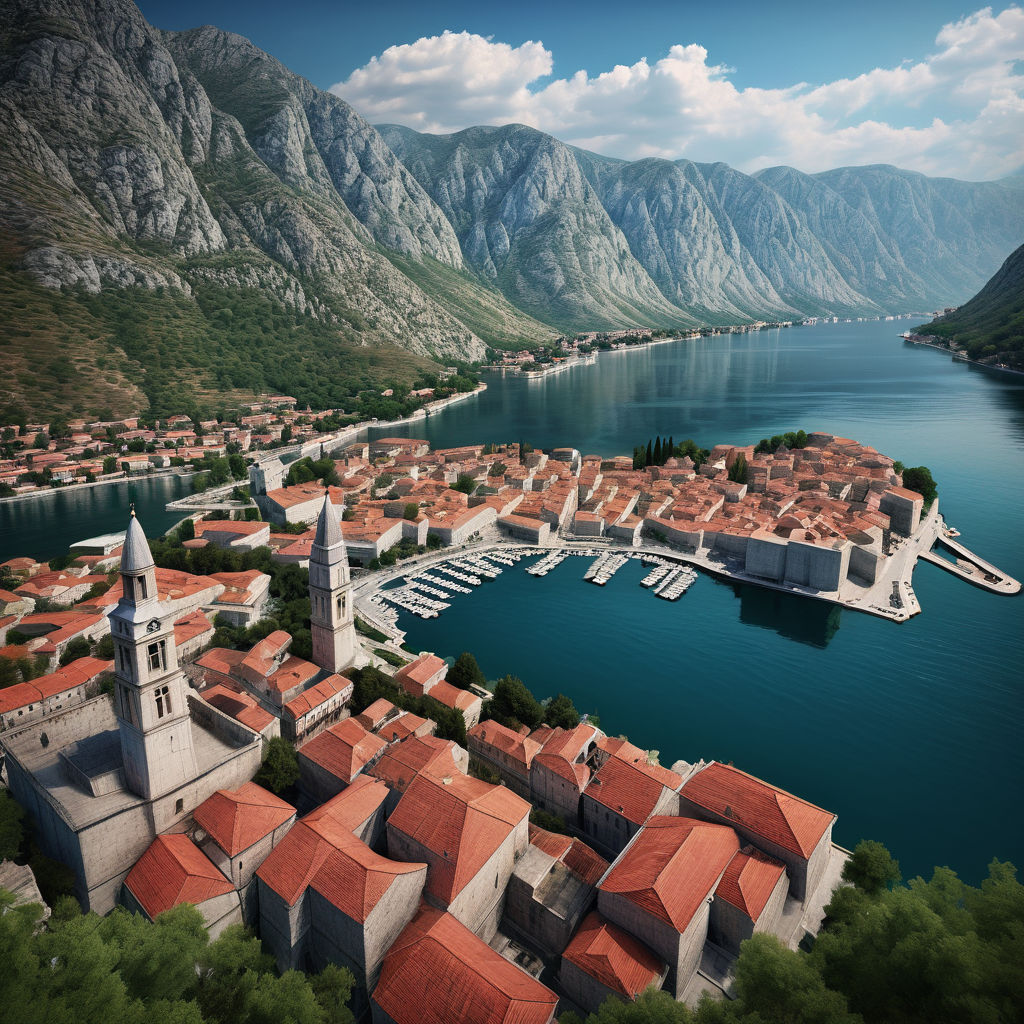Introduction to Montenegro: A Blend of Natural Beauty and Cultural Heritage
Discover Montenegro: From Rugged Mountains to Sandy Beaches

Introduction to Montenegro
Montenegro, a picturesque country located in Southeast Europe on the Adriatic Sea, is known for its stunning natural beauty, ranging from rugged mountains to sandy beaches. It shares borders with Croatia to the west, Bosnia and Herzegovina to the northwest, Serbia to the northeast, Kosovo to the east, and Albania to the southeast. The capital city, Podgorica, is the largest city and the administrative and economic center, while other major cities include the historic Cetinje and the coastal town of Kotor, a UNESCO World Heritage site. Montenegro's rich cultural heritage reflects a blend of influences from its diverse history, including Illyrian, Roman, Byzantine, Ottoman, and Venetian cultures. This is evident in its architecture, art, music, and cuisine. The country celebrates numerous festivals and events that highlight its cultural diversity, such as the Kotor Carnival and the Montenegro Film Festival. Traditional Montenegrin cuisine, featuring dishes like Njeguški pršut (smoked ham) and cicvara (a type of porridge), showcases the region's agricultural abundance and culinary traditions.
Cross-national and Cross-cultural Understanding
Montenegrins generally exhibit a welcoming and open attitude towards other cultures, a characteristic shaped by their history of trade, migration, and strategic geographical location. The people of Montenegro value cross-cultural understanding and actively engage in cultural exchanges, educational programs, and international partnerships that promote mutual respect and learning. Cultural exchanges are a significant aspect of life in Montenegro. The country hosts various festivals and events that celebrate both local and international traditions. For example, the Kotor Art Festival and the Herceg Novi Film Festival attract artists and audiences from around the world, fostering cross-cultural dialogue through art and cinema. Additionally, Montenegro's membership in international organizations such as the European Union (EU) and NATO promotes cultural and educational exchanges. Educational programs in Montenegro emphasize global awareness and cross-cultural understanding. Schools and universities incorporate multicultural perspectives into their curricula, encouraging students to appreciate and respect diversity. The University of Montenegro collaborates with international institutions to facilitate student and faculty exchanges, enriching the educational experience and fostering global connections.
Interactions and Social Dynamics
Typical interactions between Montenegrins and foreigners are characterized by warmth, respect, and a strong sense of community. Social behaviors in Montenegro reflect a blend of traditional customs and contemporary influences, emphasizing respect for others, hospitality, and communal living. Communication styles in Montenegro are generally informal and friendly. Montenegrin, a standardized variety of the Serbo-Croatian language, is the official language, but many people also speak English, especially in tourist areas and among the younger population. This multilingualism facilitates interactions with tourists and expatriates, making it easier for them to integrate into the local community. Cultural norms in Montenegro place a strong emphasis on respect for elders, community involvement, and a relaxed approach to time. These norms create a welcoming and inclusive atmosphere for foreigners, who often find it easy to adapt to the local way of life. Public displays of affection are generally accepted, reflecting the country’s relaxed social attitudes.
Views on Dating and Relationships
Attitudes towards dating and relationships with foreigners in Montenegro are generally positive. Montenegrins are open to forming relationships with individuals from different cultural backgrounds, recognizing the enrichment that such diversity brings to their lives. However, cultural expectations and traditions do play a role in shaping these views. Family involvement is significant in relationships in Montenegro, with elders often playing a crucial role in the approval process. Traditional customs emphasize respect, patience, and the gradual building of trust in relationships. While modern dating practices influenced by global trends are becoming more common among younger generations, traditional values still hold sway in many communities.
Marriage and Family
Marrying a foreigner in Montenegro involves navigating both legal and social considerations. Legally, the country has clear regulations governing marriage, including residency requirements and the need for proper documentation. Socially, cross-cultural marriages are generally accepted, though couples may face challenges related to cultural differences and integration. Familial acceptance is a key factor in cross-cultural marriages. Montenegrin families can be protective, and gaining their approval is often essential for the relationship's success. However, the diverse cultural landscape of Montenegro means that many families are already familiar with and accepting of different cultural backgrounds, which can facilitate smoother integration for foreign spouses. Trends in cross-cultural marriages reflect Montenegro's open and inclusive society. Many Montenegrins who travel abroad for education or work form relationships with individuals from various cultures, bringing back diverse customs and traditions that enrich the local community.